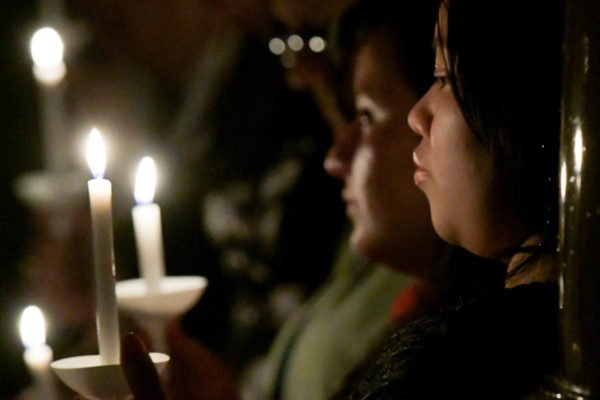In July 2015 I issued my first pastoral letter as Archbishop of Baltimore. In “A Light Brightly Visible: Guiding the Path to Missionary Discipleship,” I challenged the people of this archdiocese to join me in stretching ourselves to go deeper in our relationship with Christ, embrace the mission of the Church more fully, and live out this mission in our daily lives.
In short, I challenged us to “Be Missionary Disciples.”
In presenting this challenge, I offered the following questions:
- Are we equipped to fulfill the great commission the Lord has given us?
- Do we personally have the qualities of mind, heart and spirit to take up this task?
- Are our parishes ready to respond to the challenges of the mission in our times?
- What decisions need to be made so that we can marshal the resources the Lord has given us to do the work of the Gospel?
- Are there ways we can pull together as a Catholic community to proclaim and bear witness to the Gospel more effectively?
- How can we reach out more dynamically to those who have left and those who are searching?
Our answers to these questions and the response of our parishes, schools, charitable institutions and of Catholic individuals and families throughout the archdiocese portend nothing less than the future of the Catholic Church in the Archdiocese of Baltimore. Our responses comprise the foundation of our archdiocesan-wide strategic planning process.
In the almost two years since the publication of my pastoral letter, we sought input in a variety of ways, including an archdiocesan-wide survey that received more than 28,000 responses, and significant feedback on the pastoral plan from priests, parish leaders and others.
There were a lot of interesting survey results; two that made the biggest impression were how people responded to the question about their personal faith life, and what people felt were the biggest obstacles to sharing their faith with others.
While many feel they have a relationship with Christ and are growing spiritually, one out of every five people either did not feel like they were growing spiritually or felt their spiritual life was declining. And when nearly 40 percent of survey respondents are not comfortable sharing faith matters with others for fear of offending them, we must ask ourselves if we are “mission ready” and, if not, how we can become so.
Up until now, all parishes in the archdiocese have been organized in clusters (groupings of parishes geographically close to each other), but the ways in which the clusters function range from close collaboration to loose association. A primary goal of our planning process is to configure parishes in a way that leads to more vibrant, sustainable and evangelizing faith communities. This required a more concerted effort to bring parishes together to share in this mission and to share resources.
This level of complexity makes it imperative that we establish which parishes will be planning together and that those parishes come together to do that work under the leadership of a unified team. We call each of these configurations a “pastorate” – one or more parishes with a single assigned leader (pastor, administrator or pastoral life director) and a leadership team who, together, are responsible for parish life and structure in the parish(es) that comprise the pastorate.
As you can see in the detailed information B1-B12 of the May edition of the Catholic Review, the pastorates will be implemented over the next three to five years. Pastorate planning requires us to think differently about how we live out the core mission priorities and, in many cases, will necessitate change.
As your archbishop, I have the responsibility to plan for the future of the archdiocese through the structure of parishes and schools, as well as the assignment and development of pastoral resources. The formation of pastorates will help us do that collectively and intentionally. I call on us all to be open to the good fruit that a proactive, evangelization-based approach to planning can yield, though it will mean “casting into the deep” and heading down a path that is unfamiliar to us.


